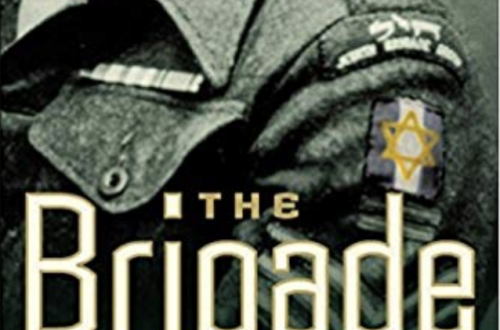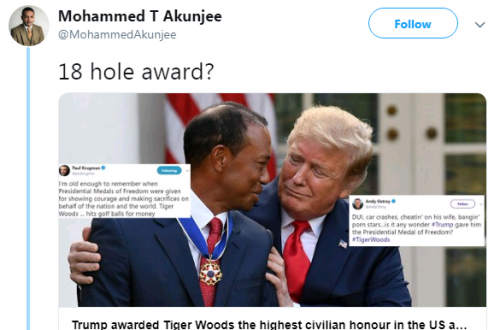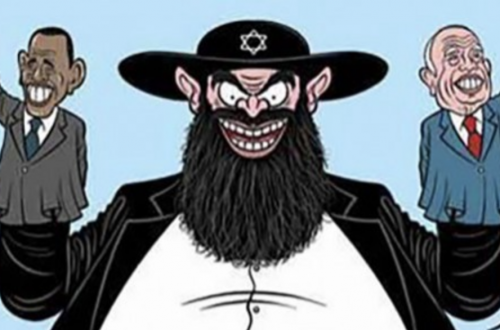This is a cross post by Ashik from The Spittoon
Last night I went along to a political rally organised by the Bangladesh Crisis Group which is an offshoot of the British Jamaat-e-Islam front, Islamic Forum Europe. I arrived at the Water Lily Centre which was the advertised venue to be told that the event had been moved to the London Muslim Centre in Whitechapel. It was later expressed in the rally that the meeting had been moved because of “political pressure”. My guess is that the Water Lily Centre, which is controlled by Awami League supporters, decided not to host any political lobby involving Toby Cadman in case it irritated their leaders in Awami League HQ in Dhaka.
I thought that it was fitting that the rally had been moved back to London Muslim Centre, the nerve centre of the Jamaat-e-Islam in the UK. After all, it was the DCLG which correctly observed that the ELM/LMC is the base for Jamaat-e-Islami in the UK.
The attendance was very good, with more than 350 people in the “men’s section” alone and more upstairs in the “lady’s section” in the LMC. The rally kicked off just after the sunset prayer, with a reading of an apology from Kemal Helbawy, the chair of the Bangladesh Crisis Group, who excused himself for his absence because he was in Cairo. Helbawy is a member of the Egyptian franchise of the Muslim Brotherhood and has advocated the justification for killing children. It is, therefore, worthwhile to note that the Jamaat-Ikhwan alliance here and also the incongruity of having someone with his views proffering advice on human rights.
There were a total of 17 speakers from the initial advertised roster of 21.
The first to speak was Bob Lambert of the European Muslim Research Centre. Lambert was good enough to confess at the onset that he had never been to Bangladesh and had limited knowledge of the facts in Bangladesh first hand. He used the opportunity to discuss the “failures of the War on Terror” and to plug his new book.
Next was Moazzam Begg, who needs no introduction to those concerned with counter-terrorism in this country, who had nothing specific to say about the situation in Bangladesh but instead spoke about his “work in Libya”. He set forth a polemical rant about “oppression of the Muslims” which had everyone in the room cheering enthusiastically.
“What you’re seeing happening in Bangladesh are the birth pangs. You can see that the most demonised organisations of the world are the Muslim organisations. Everywhere you go, east, west, Islamic countries or not. And here you see in Bangladesh, the Jamaat-e-Islami, that is being demonised, that its activists are being imprisoned. Why? The reason is the same reason why Ben Ali captured, tortured and beat the people from the An-Nahda party. The same reason why Ghaddafi captured and tortured the people from the Islamic groups there. The same reason why Hosni Mubarak tortured and imprisoned the people from the Islamic groups there. For fear of legitimate opposition that had tangible abilities to challenge the status quo, i.e. they are afraid.”
Next to speak was Toby Cadman, and it is his speech that I waited to hear with interest. Cadman is the British barrister representing the five leaders of the Jamaat-e-Islam charged by the War Crimes Tribunal in Bangladesh. I wanted to know why a barrister was appearing at a political rally with Islamists and the supporters of war criminals. He stressed early on that he was not opposed to the Tribunal but had deep misgivings that his clients may not be receiving a fair trial in Dhaka.
“As the other speakers have said, Bangladesh is entering a very, very dangerous period. It’s not just the Tribunal. Now I’m just here to speak about the wider political issues because that’s not what I’m instructed to do. My job is to represent those currently detained and those facing allegations and, as I said, I will continue to do that. But that also involves discussing the wider political issues. The complete breakdown in democracy, the barring of freedom of expression and freedom of assembly.
Now the wider political issues, that falls under the responsibility of a large number of international organisations. That’s not for me to get into as a lawyer. And what I’ve been doing is calling on these organisations to engage on a diplomatic level with Bangladesh to resolve these problems before it transcends into a humanitarian crisis. I think we’re on the brink of that right now. Some of the other speakers have already mentioned that. But as I say, those are the issues that need to be addressed by the international community. This government in particular, my government needs to step up and recognise that there is a serious problem.”
As Jamaat-e-Islam’s barrister, Toby Cadman is right to draw out any failures in due process and judicial norms by the War Crimes Tribunal in Bangladesh. However, here in London, he is sharing a platform with political groups who have been involved with crimes against humanity, sectarian violence, terrorism and human rights abuses of their own in Bangladesh and elsewhere. It is correct that people should speak out against the use of special security forces used by successive governments of Bangladesh which has led to various humanitarian abuses. But for an international barrister to point out these political and human rights abuses in Bangladesh, which are legion, and to conflate them with the due process obligations of the Tribunal is politicking and simply disgraceful.
Next to speak was Oliver McTernan, who spoke about the human rights abuses in Bangladesh in the most abstract terms and admitted that he had only educated himself on the issues prior to attending the rally, from the internet.
Farooq Murad of the MCB spoke next. Murad’s father, Khurram Murad, was the vice-Amir of the Jamaat-e-Islami in Pakistan and, as you would expect from the MCB, used arresting phrases to suggest that the whole matter was an international religious struggle against the oppression of Muslims:
“What is happening in Bangladesh now is an insult to the Ummah”
Imam Hazim Fazlic who is from Bosnia-Herzegovina, and is an imam in Birmingham, was next to speak. One of the points he made was that he hoped that Bangladesh would be the subject of some kind of humanitarian intervention by the international community, similar to Bosnia. This was not met with a very enthusiastic response from the audience.
Walid Saffour, of the Syrian Human Rights Committee, ended his speech with these words:
“May God protect our Maulana Delwar Hussein Sayeedi!”
This caused a full-throated cheer from the ELM audience, a response which made me sick to my stomach. Delwar Hussein Sayeedi stands accused in Bangladesh charged with looting, plundering, arson and rape of members of the Hindu minority. A full account of his crimes and the evidence brought to the Tribunal can be found here.
Other speakers who also addressed the LMC last night were Jonathan Fryer and Dr Noureddin Meladi. Fryer mentioned the human rights abuses in Bangladesh perpetrated by the Rapid Action Battalion, an elite crime force which has been responsible for many extra-judicial killings in Bangladesh.
Next to speak was Mahidur Rahman, who is the ‘Chief Coordinator’ of the UK chapter of the Bangladesh National Party (BNP) in the UK. For some reason, Mahidur Rahman failed to mention that it was his party, the BNP, which was responsible for the creation of the Rapid Action Battalion (RAB). It was under the BNP government that RAB had become a “government death squad” in 2006, which a US human rights group accused of being responsible for killing350 suspects in custody.
Mahidur Rahman made no mention of this, choosing instead to lay the blame of the RAB’s human rights abuses and extra-judicial killings firmly and in gross partisan manner on the Awami League instead.
We next had Noureddin Miladi, a Tunisian who suggested this little Islamist nugget of wisdom:
“[Democracy] as has been going for the last forty years on Bangladesh, has been something imposed from above. And all the rulers have, in a way, sustained by western powers because they serve their agenda of the western powers”
Musleh Faradhi the leader of the IFE spoke next. In addition to suggesting that the War Crimes Tribunal is some kind of Neocon conspiracy ordained by George Bush, he dishonestly mangled an historical fact:
“They found something special for Bangladesh and that is war crimes and war criminals. Because they know, because their gurus told them the bigger the issue that you raise, the young people of Bangladesh will become very emotional. They would think ‘How can these people be the enemy of the country, how can a group of people work against the independence of the country?’
Therefore they have found an issue and they have tried to make an issue of something that was not an issue. Because Bangladesh reconciled with what happened in 1971. People who were criminals, they were tried and the people who were not criminals were forgiven by the founder of the nation. But why it has come up after forty years? Only because they want to suppress opposition”
This is a blatant lie made here by Faradhi. It is his assertion that criminals were tried in 1971. But war criminals have not faced judicial proceedings until now. Perhaps he should have listened to his colleage, Toby Cadman, who had just previously said on the same platform:
“It’s important that Bangladesh, as a nation, brings an end to this particular chapter and brings an end to impunity. It has an obligation under international law to do this. It also has an obligation under international law to do it properly.”
And that is exactly what should be done. And it would be advisable that the Jamaat-e-Islami activists of the East London Mosque and the Islamic Forum Europe and their various friends who all spoke at the meeting yesterday accept that justice be served by supporting the judicial processes in Bangladesh under the War Crimes Tribunal.
It is also imperative that the War Crimes Tribunal itself comply to all international judicial process and norms so that the accused can get a fair trial.


